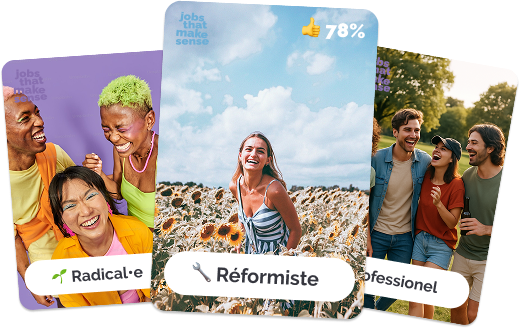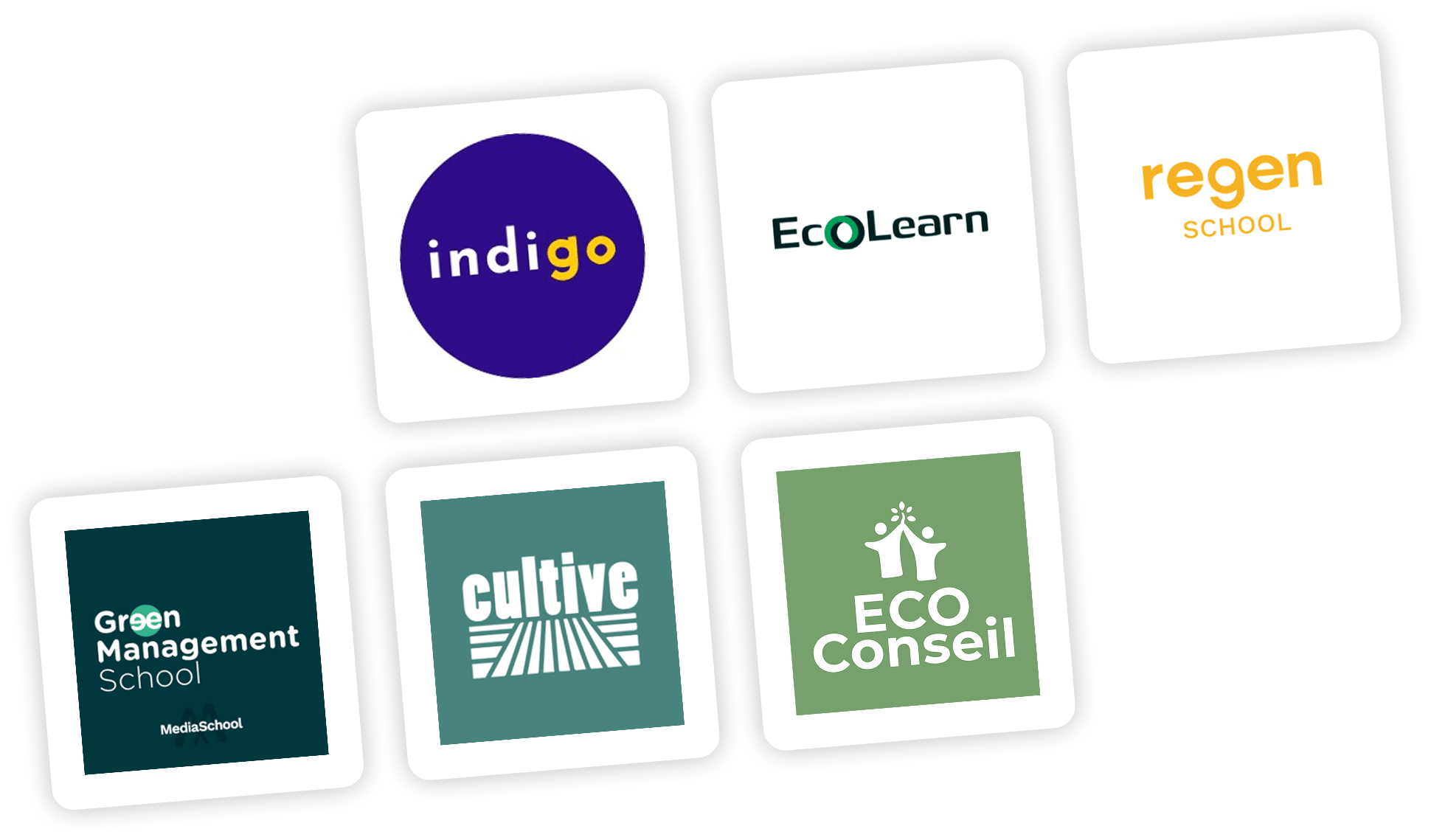Quick links
Find a meaningful job
Training for impact
Profile
Recruiter
Misc

Découvrez votre profil à impact
Mieux comprendre ce que vous recherchez pour trouver un job qui a du sens pour vous.

Parcours Orientation Impact
Un parcours en 4 étapes, à son rythme, pour comprendre le monde de l'impact et passer à l'action !

Trouvez votre formation
Répondez à quelques questions pour découvrir les formations adaptées à votre projet.



